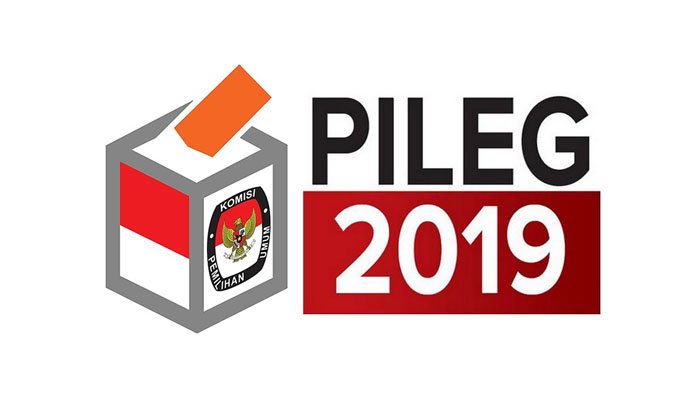Smart in Choosing Legislative Candidates
By: Rendy Adrian *
The General Election Commission (KPU) announces the names of former prisoners of corruption cases who are legislative candidates in the 2019 Election. Candidates known to have felt the bars of the prison number up to dozens of people. Arief Budiman revealed that the total number of candidates who were former prisoners of corruption cases was 49 people. He also added that the former corrupt prisoners registered themselves as candidates in the Provincial, City, District DPRD and Regional Representative Council (DPD).
Of the 14 national parties participating in the April 2019 Election, 12 of them nominated former corrupt prisoners. Only four parties were cleared of candidates for former corrupt prisoners, namely PPP, NasDem, PKB and PSI. KPU Commissioner Ilham Saputra explained the number of former corrupt prisoners in each party. For the DPR RI, there is only the level of Provincial DPRD, Regency / City DPRD and DPD.
Total former corrupt prisoners who are candidates for Provincial DPRD 16 people and Regency / City DPRD 24 people. Total 40 people. While the former Corruption Prisoners registered as candidates for the Regional Representative Council (DPD) numbered 9 people. They nominate themselves in Aceh, North Sumatra, Bangka Belitung, South Sumatra, Central Kalimantan, Southeast Sulawesi and North Sulawesi. This announcement also received support from the Corruption Eradication Commission (KPK). KPK spokesman Febri Diansyah revealed that the KPU’s steps were to make the public know who were the candidates for representatives of the people who had dealt with the KPK, even though they had been legally tried.
According to Febri, this effort from the KPU reflects support for eradicating corruption. In addition, so that people can really choose prospective leaders with a good background. Moreover, the KPK has handled hundreds of members of the Republic of Indonesia Parliament, then members of the DPRD and also regional heads or hundreds of perpetrators of corruption cases in the political sector. Do not let in 2019 again people – people who have enjoyed public money when they get positions.
Meanwhile, Deputy Chairperson of the Corruption Eradication Commission, Saut Situmorang said, even though the Supreme Court has allowed the former corrupt candidate in Article 2 of the Corruption Crime Act to be explained, a former prisoner of corruption, when committing corruption can be sentenced to death. Previously, KPU planned to announce the list of names of former legislative candidates for corruption cases through a number of platforms. In addition to being announced on the KPU’s official website, the list of candidates for former corruption cases will also be announced through mass media, print and electronic.
The KPU will publish the 49 names of former candidates for corruption inmates through the KPU’s official website and disseminate to the Regency / City and Provincial Governments. The list does not only contain the names and identities of ex-convict candidates, but also bearer parties, legal cases that have ensnared them, including judicial decisions of relevant legal cases. This identity announcement is certainly not without reason, because in accordance with Law Number 7 of 2017 concerning elections. Article 182 of Law Number 7 of 2017 stipulates that Candidates may not be former convicts with a threat of five years in prison or more, except openly and honestly telling the public that the person concerned is a former convict.
Article related Ex-convict candidates have sparked debate, especially regarding former corruptor candidates. KPU had banned former corruption inmates from advancing as Candidates in the 2019 Election through article 4 paragraph 3 of the KPU Regulation (PKPU) Number 20 of 2018 concerning the nomination of members of the DPR, Provincial DPRD and Regency / City DPRD. The prohibition is also stated in article 60 letter j PKPU Number 26 of 2018 concerning the second amendment to PKPU Number 14 of 2018 concerning the nomination of DPD members. But the Supreme Court issued a ruling to allow former corruptors to run for office. MA argues that the prohibitions are contrary to Law Number 7 of 2017 concerning General Elections.
The KPU is also still discussing a plan to expand the announcement of the identity of the former corrupt candidates at the polling station (TPS) of the relevant electoral districts as suggested by the KPK. This still requires consideration by the KPU, because there are still candidates who are other former legal prisoners who will also be announced by the KPU in the near future. Because the types of criminal acts vary, the KPU is still clarifying the Candidate’s data to the regions. The aim is to avoid mistakes in announcing the legal status of ex-convict candidates in addition to corruption.
Of course this effort must be supplemented by the role of the community who already understand political and anti-corruption education to awaken the lay segments of society about the influence of corruption in power. With the existence of this policy, of course the KPU hopes that the voters can find out the track record of the candidates who participated in the April 2019 democracy party, so that voters can make their choices according to their conscience.
Although this regulation has raised a lot of debate from various circles, of course the steps taken by the KPU can make people smarter in choosing candidates who have integrity and certainly have a commitment not to corruption. In the perspective of human rights and the value of democracy, indeed every citizen has the right to choose and be elected. But common sense should be used by raising a question, is it appropriate for a person who has been proven legally to commit a crime that corrupts the state, violates the economic and social rights of the community at large given the right to sit in parliamentary seats, human common sense would certainly say not to the thieves of public money.
* The author is a student of FISIP Unpar
